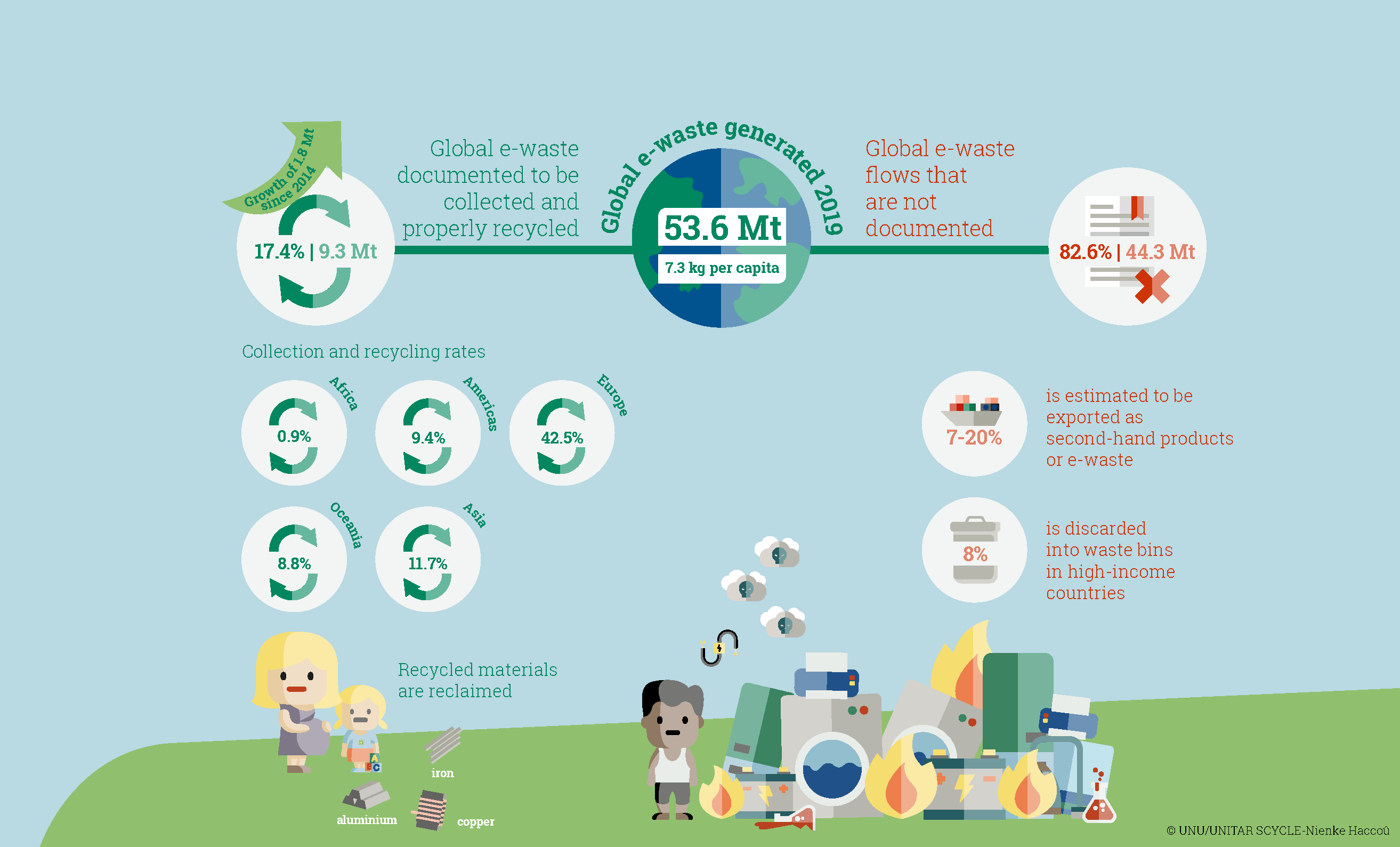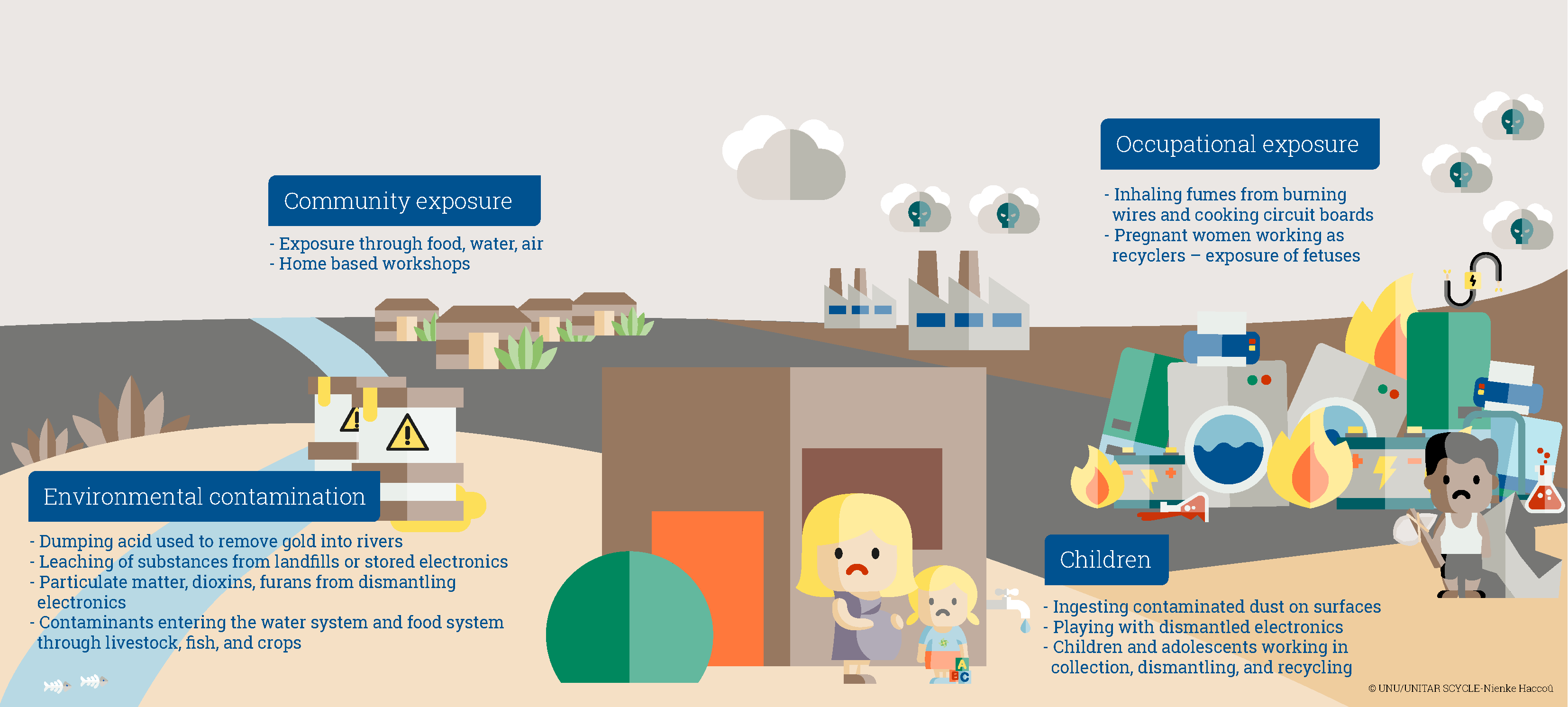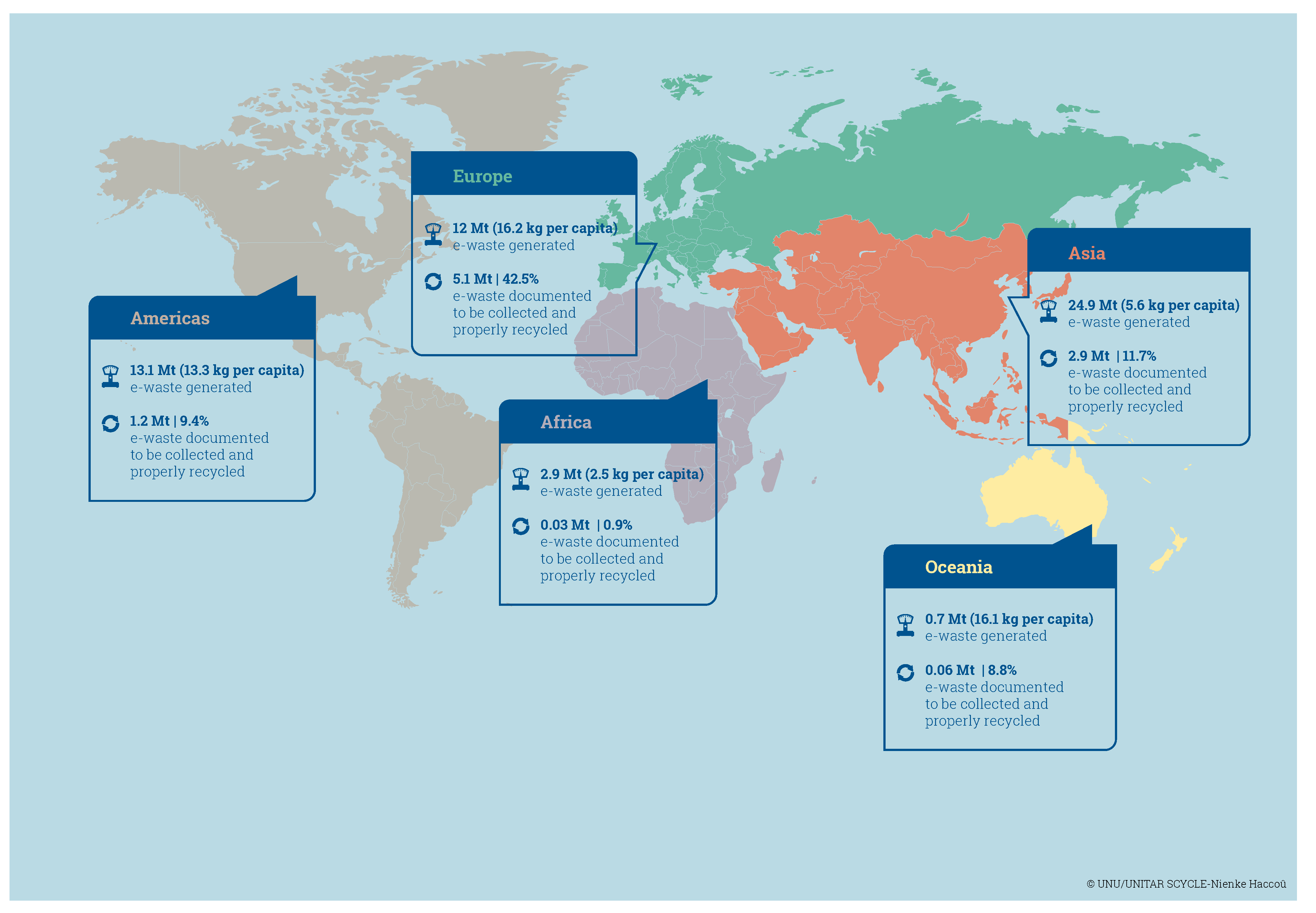 Did you know that every year about one third of all food produced – equivalent to 1.3 billion tonnes – is wasted, yet food security continues to be a growing global concern, affecting millions of people. Or that the world’s freshwater supply such as rivers and lakes are polluted at a much faster rate than nature can recycle and purify?
Did you know that every year about one third of all food produced – equivalent to 1.3 billion tonnes – is wasted, yet food security continues to be a growing global concern, affecting millions of people. Or that the world’s freshwater supply such as rivers and lakes are polluted at a much faster rate than nature can recycle and purify?
COVID-19 lockdowns may have led to a dramatic 5 per cent drop in greenhouse gas emissions but not all measures to contain the pandemic have had a positive impact on the environment, warns the UN Conference on Trade and Development. Global sales of disposable face masks have sky-rocketted, and many more people have turned to online shopping due to social distancing.
What does this mean? Plastic waste created by over-packaged products and take-out meals that are delivered daily to homes are now clogging our landfills and floating in our seas. According to the UN Environment Programme, the costs are staggering – the negative spillover effects from plastic waste on fisheries, tourism and maritime transport, for example, can cost up to an estimated $40 billion each year.
In August, we look at the importance of Responsible Consumption and Production as our guide to a less wasteful and more sustainable future.
ENVIRONMENT
UN News: COVID-19 and Pollution
The fight against plastic pollution is being affected by the COVID-19 pandemic, as the use of disposable masks, gloves and other protective equipment soars. Plastic waste has long been a major concern, but the UN – and its partners – insist that if effective measures are put into place, the amount of plastics dumped every year into the oceans and landfill can be drastically reduced, or even eliminated. UN News looks at “Five things you should know about disposable masks and plastic pollution.”
How cities are using nature to keep heat waves at bay
As the planet warms, the demand for cooling is only increasing global carbon emissions. If air conditioners were provided to all those who need them, there would be 14 billion cooling appliances in use by 2050, warns the UN Environment Programme (UNEP). Green spaces, greening building facades and roofs, and passive building designs are some of the nature-based solutions cities are adopting to keep cool.
 Cooling Emissions and Policy Synthesis Report
Cooling Emissions and Policy Synthesis Report
In its latest report, jointly produced with the International Energy Agency, UNEP looks at how coordinated international action on energy-efficient, climate-friendly cooling could avoid as much as 460 billion tonnes of greenhouse gas emissions over the next four decades.
 Global Forest Resources Assessment 2020
Global Forest Resources Assessment 2020
Forests are crucial resources for addressing major issues related to sustainable production and consumption, poverty alleviation, food security, biodiversity conservation and climate change. The Food and Agriculture Organization’s latest Global Forest Resources Assessment Report looks at the state of the world’s forests, including unsustainable practices and efforts to restore degraded areas.
FOOD SECURITY
Rethinking the food we eat
“The entire food value chain needs to be transformed, all the way from farm to fork,” write UN Development Programme Goodwill Ambassadors and internationally acclaimed chefs Joan, Josep and Jordi Roca. Read their latest blog on why we need to rethink what we eat and how we enjoy food.
The State of Food Security and Nutrition in the World Report 2020
A recent joint report issued by several UN agencies, The State of Food Security and Nutrition 2020, looks at how the COVID-19 pandemic is intensifying the vulnerabilities and inadequacies of global food systems, while estimating that at least another 83 million to 132 million people may go hungry in 2020. Current estimates further show that nearly 690 million people – or 8.9 percent of the world population – is hungry, up by 10 million people in one year and by nearly 60 million in five years.
TECHNOLOGY
Tackling Global E-waste
A record 53.6 million metric tonnes of e-waste – discarded products with a battery or plug such as computers and mobile phones – was generated globally in 2019, up 9.2 Mt in five years. A new report by the International Telecommunications Union on Global E-waste warns that toxic and hazardous substances such as mercury, brominated flame-retardants (BFR) or chlorofluorocarbons (CFCs) are found in many electronic equipments and pose severe risk to human health and the environment if not handled safely. More information and the full report are available here.
COMING SOON: MOBILE APP FOR SUSTAINABLE LIVING
ActNow, the United Nations campaign for individual action on climate change and sustainability, is getting support from a mobile app this September. In light of COVID-19, we need to seize the moment and change course towards more sustainable lifestyles and take care of our planet – every one of us can help limit global warming by making choices that have less harmful effects on the environment. The new app will educate, engage and help spur behaviour change via journeys, tips and quizzes and highlighting the impact of your actions. Stay tuned for more information!
The Three R’s of Recovery – Reduce, Reuse and Recycle
Greening the entertainment industry is music to our ears
Virtual concerts can be a more sustainable way of enjoying music as the entertainment industry consumes an enormous amount of energy and concert-goers produce tons of waste. In a post-pandemic world, this raises questions about what entertainment itself could be as we work to build back better.
Four ways to make your house of worship eco-friendly
Around the world, there are an estimated 37 million churches, 4 million mosques, 20,000 synagogues and hundreds of millions of temples. Experts say many of these houses of faith could become models of sustainability by practicing eco-friendly worship, embracing green buildings, and offering environmentally-friendly sermons. Learn more about UNEP’s newly published guidelines for congregations that want to go green.
UN News: Musical Gift from Hawaii
 The production by a local company of the iconic Hawaiian instrument, the ukulele, is showing how the sustainable use of finite resources on the Pacific Ocean island is helping to protect the US state’s fragile ecosystem and prevent environmental degradation, whilst also fostering economic and social progress. UN News explores the sustainable production of Hawaii’s ukuleles – listen to the podcast here.
The production by a local company of the iconic Hawaiian instrument, the ukulele, is showing how the sustainable use of finite resources on the Pacific Ocean island is helping to protect the US state’s fragile ecosystem and prevent environmental degradation, whilst also fostering economic and social progress. UN News explores the sustainable production of Hawaii’s ukuleles – listen to the podcast here.
 There are more than 7.5 billion people on earth, and we use 1.5 times more resources than we have.
There are more than 7.5 billion people on earth, and we use 1.5 times more resources than we have.
In a world of increasing resource constraints and demands, we must do more, better, with less waste. While making real change is an immense and multifaceted task, it can and must be done.
UNDP helps countries design integrated solutions that speed up progress on the Sustainable Development Goals to advance social, economic and environmental targets. Read more here.
KEY Events IN AUGUST
9 August | International Day of the World’s Indigenous Peoples
This year’s theme focuses on “COVID-19 and indigenous peoples’ resilience” – highlighting the need to preserve and promote indigenous peoples’ traditional knowledge and practices can be key to efforts to build back stronger and more sustainably. A virtual commemoration will feature a panel discussion on the innovative ways indigenous peoples continue demonstrating resilience and strength in the face of the pandemic.
With the Americas still the epicentre of the pandemic, the World Health Organization recently warned that the region’s indigenous people are among the world’s most vulnerable groups at risk of contracting COVID-19. As of early July, more than 70,000 cases and over 2,000 deaths were reported among this population.
Read the United Nations’ policy brief on “The Impact of COVID-19 on Indigenous Peoples” which looks at the vulnerabilities of the indigenous communities.
12 August | International Youth Day
This International Youth Day, the United Nations will highlight the work inspiring young leaders are doing in their communities, countries and around the world, under the theme, “Youth Engagement for Global Action.”
On that day, UN Secretary-General António Guterres will also convene his first official meeting with a group of seven young climate leaders who were recently selected to join his Youth Advisory Group on Climate Change – in an effort to engage and amplify youth voices. Learn more about the leaders and their work here.
19 August | World Humanitarian Day
Every World Humanitarian Day, the United Nations celebrates and thanks the people who have committed their lives to helping others. The Day is also an opportunity to reflect on the risks aid workers take in the service of others. On that day 17 years ago, 22 people, including the then UN Special Representative in Iraq, Sergio Vieira de Mello, were killed in a bomb attack targeting the organization’s headquarters in Baghdad.


















